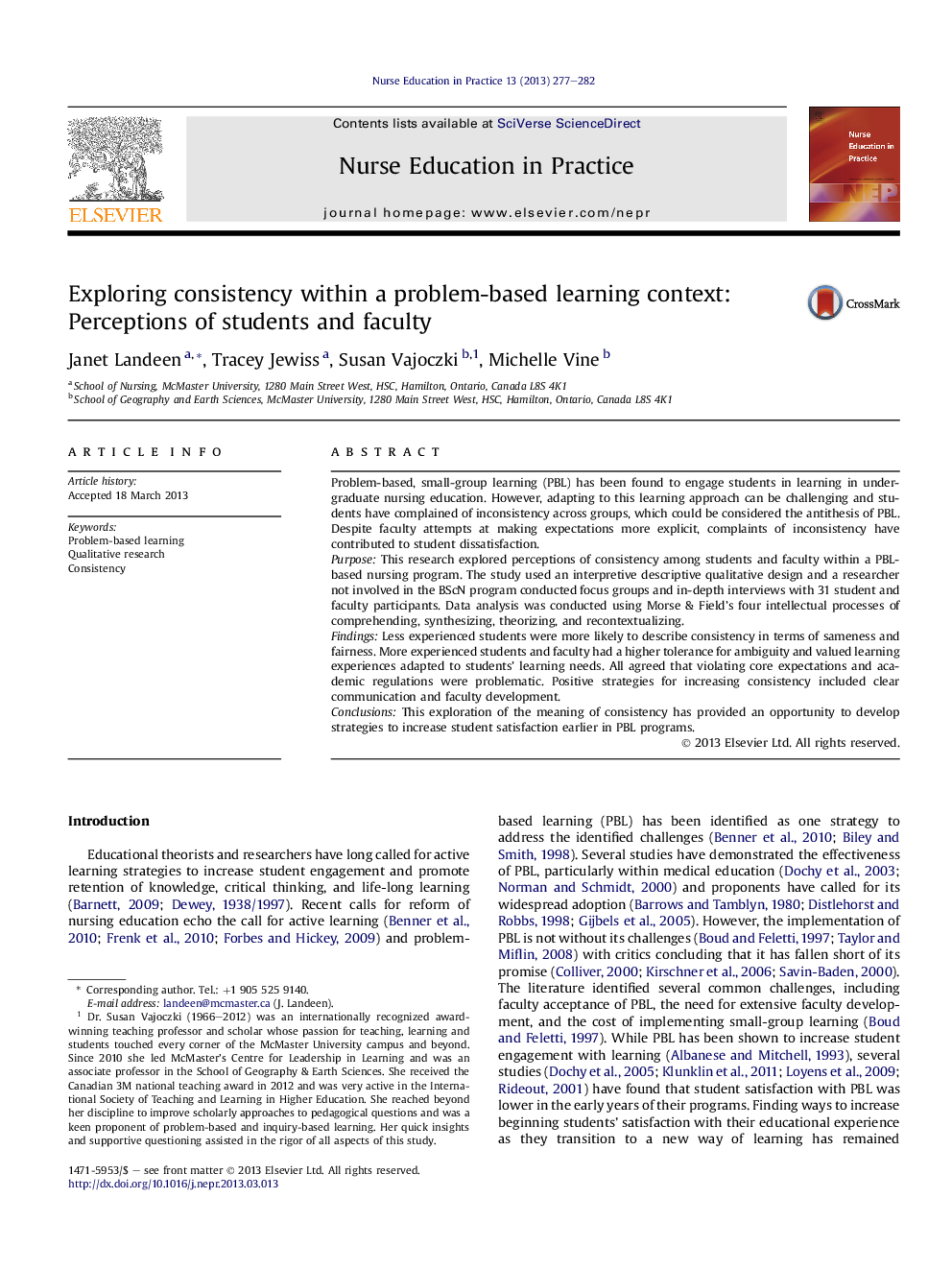| Article ID | Journal | Published Year | Pages | File Type |
|---|---|---|---|---|
| 367373 | Nurse Education in Practice | 2013 | 6 Pages |
Problem-based, small-group learning (PBL) has been found to engage students in learning in undergraduate nursing education. However, adapting to this learning approach can be challenging and students have complained of inconsistency across groups, which could be considered the antithesis of PBL. Despite faculty attempts at making expectations more explicit, complaints of inconsistency have contributed to student dissatisfaction.PurposeThis research explored perceptions of consistency among students and faculty within a PBL-based nursing program. The study used an interpretive descriptive qualitative design and a researcher not involved in the BScN program conducted focus groups and in-depth interviews with 31 student and faculty participants. Data analysis was conducted using Morse & Field's four intellectual processes of comprehending, synthesizing, theorizing, and recontextualizing.FindingsLess experienced students were more likely to describe consistency in terms of sameness and fairness. More experienced students and faculty had a higher tolerance for ambiguity and valued learning experiences adapted to students' learning needs. All agreed that violating core expectations and academic regulations were problematic. Positive strategies for increasing consistency included clear communication and faculty development.ConclusionsThis exploration of the meaning of consistency has provided an opportunity to develop strategies to increase student satisfaction earlier in PBL programs.
